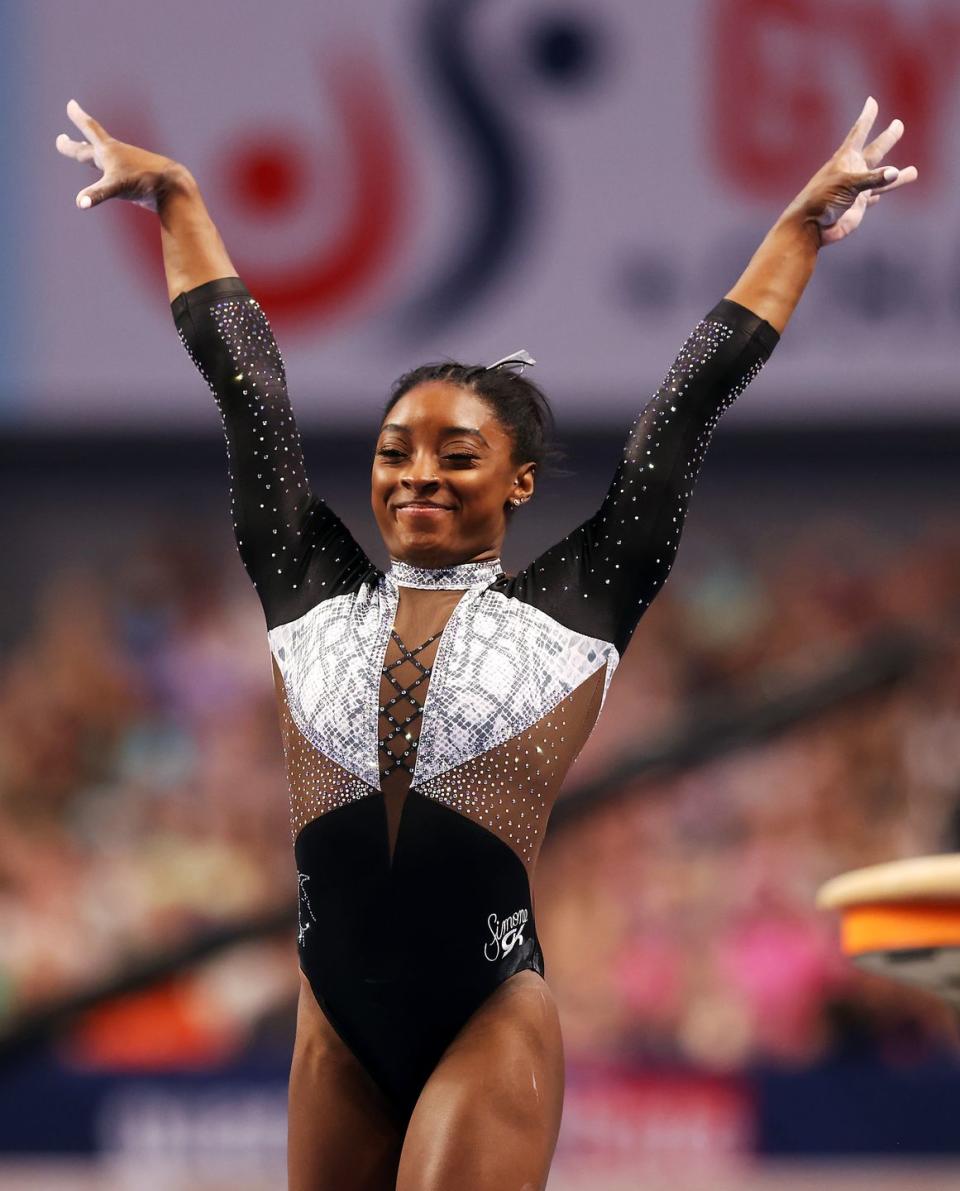Simone Biles Initially Resisted Therapy. Now, It Helps Her ‘Process All the Emotions’

Simone Biles opened up about initially resisting therapy for her mental health.
“I just wouldn’t say anything. I was like, ‘I’m not crazy. I don’t need to be here,’” she recalled of her first session.
Now, the Olympic gold medalist credits therapy for helping her find herself.
The last year has been a transformative one for Simone Biles. Like many people, because of the negative stigma associated with therapy, she told herself for a long time that she didn’t need to go. But ultimately, she went and is so glad she did.
“One of the very first sessions, I didn’t talk at all,” she recently told Glamour. “I just wouldn’t say anything. I was like, ‘I’m not crazy. I don’t need to be here.’”
Over time, her therapist explained that anyone can benefit from mental health services—especially Biles, who, at only 24, is an ultra-competitive Olympic gold medalist training for a pandemic-postponed Olympics while standing up against the enablement of sexual abuse by USA Gymnastics, the team for which she still competes.

“I thought I could figure it out on my own, but that’s sometimes not the case. And that’s not something you should feel guilty or ashamed of,” she explained. “Once I got over that fact, I actually enjoyed it and looked forward to going to therapy. It’s a safe space.”
Before therapy, her only tool for survival was compartmentalization. Biles had to literally forget the fact that USA Gymnastics subjected young girls—including her—to sexual abuse in order to perform on the mat. Now, she’s been given the tools for processing those thoughts and feelings.
“Before I would only focus on the gym. But me being happy outside the gym is just as important as me being happy and doing well in the gym. Now it’s like everything’s coming together,” she explained. “I got to process all the emotions. I got to go through being angry, sad, upset, happy, annoyed. I got to go through all of it by myself, without anybody telling me what to feel.”
It was—and still is—a difficult journey for the athlete. She said she wanted to give up at times, but ultimately decided not to because she’s “worked way too hard.” And now, as an adult, she’s slowly realizing that the decision to continue pursuing gymnastics is solely up to her, and that’s freeing.
“I’m not a little girl anymore. It’s definitely up to me. Nobody’s forcing me,” she said. “Whenever you’re younger, you feel like it’s a job, and you have to be pushed. But now it’s like, this is what I want to do, so that’s why I’m here.”
Now, after overcoming her hesitancy, she doesn’t plan on stopping therapy anytime soon: “I’m just really trying to find who I am.”
You Might Also Like

